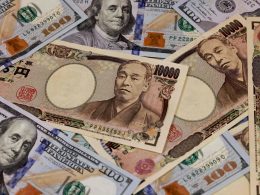The world of finance is always in a state of flux, and the latest buzz is all about the banks. As concerns rise over their stability and resilience, bond traders are predicting an end to upcoming interest rate hikes by the Federal Reserve. What does this mean for investors? How will it impact the economy? Join us as we delve into this hot topic and explore what lies ahead. Get ready to buckle up for a wild ride!
The Current Situation
The current situation has bond traders forecasting the end of upcoming Fed interest rate hikes. The recent drop in stock prices has caused some investors to become more pessimistic about the future, and they believe that the Fed will not be able to keep up with inflation. This has led to a decrease in demand for government bonds, which is why bond traders are now predicting that the Fed will begin to phase out their interest rate hikes soon.
This news could have a significant impact on the market, as it suggests that there may be less reason for companies and investors to borrow money in order to invest. If this trend continues, it could lead to a decrease in the value of securities and an increase in borrowing costs. In short, this could have a major impact on economic activity overall.
While it’s still too early to say for sure what will happen, this shift in expectations indicates that there may be trouble ahead for the economy. It’s important to stay vigilant and monitor all developments closely so that we can make informed decisions about our investments.
What Factors Will Affect the Fed’s Decision?
The Federal Reserve will soon announce its decision on when to raise interest rates, and investors are trying to guess which factors will influence the decision.
Some economists believe that the Fed is likely to hike rates twice this year, but others think that it may only raise rates once. The unemployment rate has been slowly declining, but it’s still high at around 7.5 percent.
On the other hand, inflation has been slowly increasing and some economists believe that the Fed should act quickly to increase rates in order to prevent too much inflation from happening. There are also a number of bond traders who believe that the Fed is likely to delay raising rates until later this year because there are a lot of uncertainties in the economy right now.
The Outlook for the Bond Market
The bond market is facing increasing uncertainty due to the recent changes in banking industry. Traders are now forecasting that the Federal Reserve will raise interest rates multiple times this year, which would cause bond prices to decline. This could lead to a decrease in bond yields, making bonds less attractive investments for investors. While the outlook for the bond market remains uncertain, there is no clear indication that it will end in a major way anytime soon.
How Do Interest Rates Affect Corporate Investments?
The Federal Reserve has raised interest rates four times since late 2015 in an effort to normalize policy and promote economic growth. Yet, bond traders are now forecasting that the Fed will stop raising rates before the end of the year, citing increased concerns over globaleconomic slowdown and US political instability. This divergence in opinion is likely due to a number of factors, including interest rates themselves.
When interest rates are raised, it costs more money for companies to borrow money. Some companies may decide to invest less because they will have to pay higher interest rates on their borrowed funds. Meanwhile, other companies may choose to borrow more money in order to expand their businesses or purchase new assets. Whichever decision a company makes will depend on a variety of factors, including its financial situation and the current market conditions.
Because interest rates play such an important role in corporate investments, any change in their trajectory can have a significant effect on the economy as a whole. For example, if investors become increasingly concerned about future rate hikes and start selling bonds aggressively, this could lead to a drop in demand for stocks and other securities and ultimately slower economic growth.
Conclusion
Many bond traders are now forecasting the end of upcoming interest rate hikes by the Federal Reserve. The reasons for this change in sentiment are manifold, but the most pressing one is that banks have been suffering from a series of bank failures and crisis-era lending rates. Combined with mounting worries about global economic growth, this has prompted many traders to believe that the Fed will soon stop raising rates altogether.









